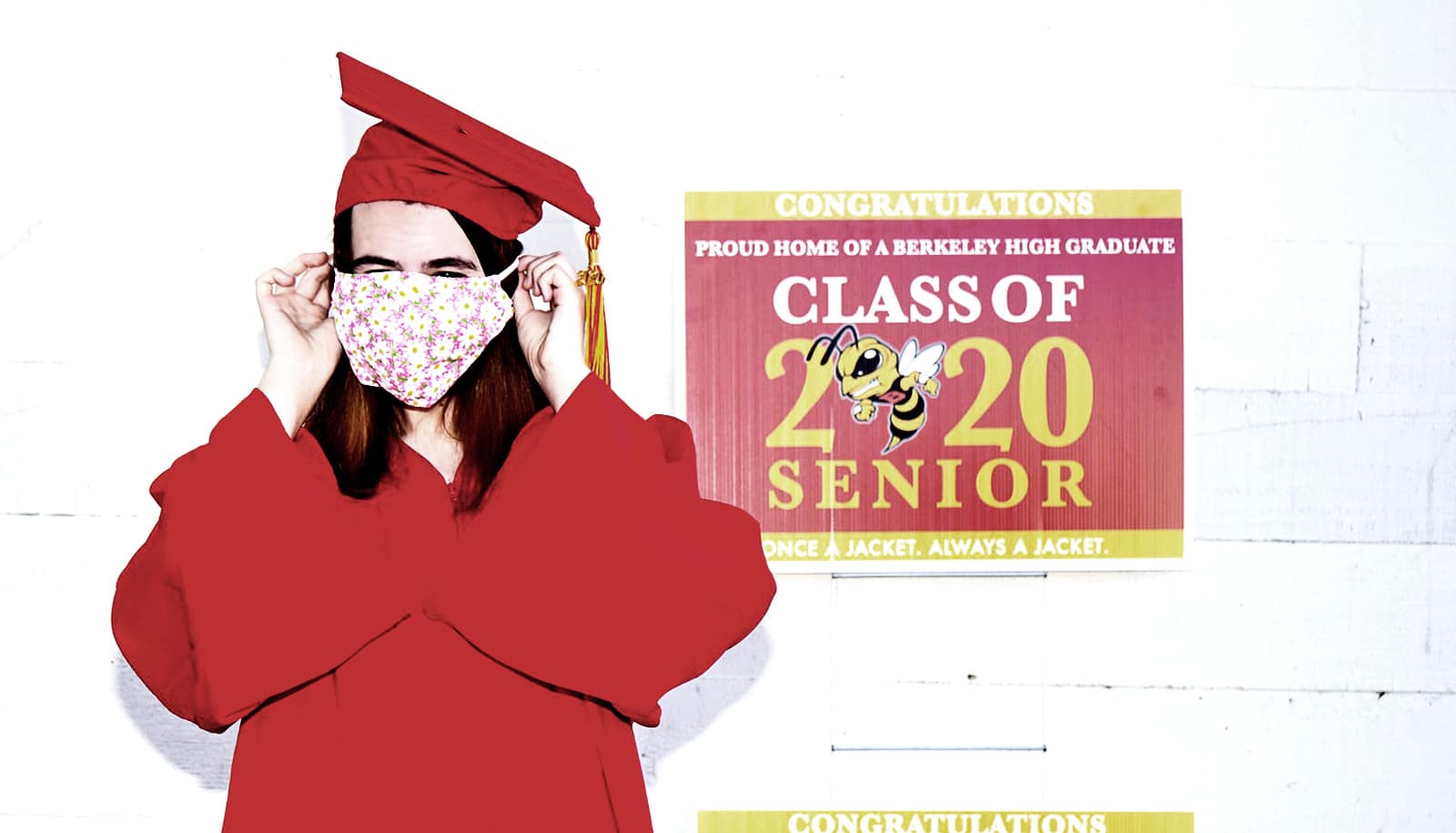
"As painful and as ambiguous as these losses are, we are going through them together. And with this shared experience, we can look to ourselves and to others for ways to build communities inside and outside of our homes," say Jennifer Greif Green, Alissa Greif Ovadia, and Geoffrey L. Greif. (Credit: Mark Coplan's Berkeley Public School Photos/Flickr )
How to get kids through the ‘ambiguous loss’ of rituals
We've had to cancel or remake rituals that shaped young people's lives before the pandemic. Here's how to help them cope with the "ambiguous loss."
With rituals like graduations canceled or moving online during the COVID-19 pandemic, Jennifer Greif Green, Alissa Greif Ovadia, and Geoffrey L. Greif explain how you can help your children handle the “ambiguous loss” that comes with those changes:
Rituals provide societies honored methods of coming together to celebrate accomplishments, to mark commitments, and to say goodbye. We know to throw our caps in the air at graduation, to walk down an aisle at a wedding, and to shed tears and bow heads at a funeral.
Today, graduations from high school, college, and graduate school are taking on a virtual patina. But even the time-honored transitions from one grade to the next—with the ritual cleaning out of a cubby, the thank-you note to the teacher, the hallway hug of friends, and the end-of-the-year picnic—are canceled.
Ambiguous loss is a term coined by Pauline Boss, a University of Minnesota professor, to describe significant losses that cannot be resolved, such as a loved one who is missing in action in war or a child who has been abducted and is still missing. Ambiguous loss can be considered as a lens for what we are going through now. We like to have certainty and now we do not.
Receiving one’s degree will not feel the same. Almost all states have closed K-12 schools for the rest of this year. What remains is uncertainty about whether and how students will participate in saying goodbye to their school year.
Will one-quarter of third graders go back into their classroom between 9 and 9:30 AM wearing masks to clean out their desks, with the next one-third coming at 9:45? Will high-school athletes remove their gear from gym lockers as long as they are six feet away from their teammates, while coaches cheer them on from the stands?
We will all—students, teachers, staff, and parents—be left feeling unfinished and separated, deprived of our rituals.
How can families support their children in responding to the ambiguity of these endings? Here are a few suggestions:
1. Discuss the ambiguity. Boss emphasizes that coping with ambiguous loss often requires us to recognize that it is not possible to be in control of the situation or to resolve the sense of uncertainty. Instead, we can learn new ways to live with both the virtual presence of people (e.g., teachers, friends, extended family) and their physical absence. We can agree that we are missing milestones while at the same time accepting new opportunities.
For children, sitting with this ambiguity and uncertainty is often a challenge, as it is for many adults. But families can talk about it with their children and acknowledge a range of emotions that may ensue, including a sense of loss, even as we build relationships and traditions in new ways. More celebrations will come our way.
2. Explore opportunities for gratitude. Researchers have repeatedly found that expressing gratitude is associated with improved mental health, well-being, and stronger relationships. Parents can model for children opportunities to identify things they are grateful for, even in the context of unpredictable change and loss. A small moment, like connecting with a school friend on FaceTime, can be something for which to be thankful. Showing gratitude toward others can build on this.
3. Engage your child in decision-making. While there are many issues that children and teens don’t have control over right now, there are also things that they can control—such as the order in which they do their schoolwork, which friends they talk to in the evening, and how they want to spend free time. Work with your child to identify decisions that they can make, so in moments when they feel vulnerable, they can focus on what they can do.
4. Approach yourself and your children with love. There is no blueprint for how to manage this time. A nonjudgmental lens of love and support may be the best way to enhance your connections and build feelings of value and worth.
As painful and as ambiguous as these losses are, we are going through them together. And with this shared experience, we can look to ourselves and to others for ways to build communities inside and outside of our homes.
Jennifer Greif Green is an associate professor of special education at Wheelock College of Education & Human Development. Alissa Greif Ovadia is a school counselor in the Brookline, Massachusetts public schools. Geoffrey L. Greif is a professor in the School of Social Work at the University of Maryland.
This article was originally published in Psychology Today .
Source: Boston University
The post How to get kids through the ‘ambiguous loss’ of rituals appeared first on Futurity .
Share this article:
This article uses material from the Futurity article, and is licenced under a CC BY-SA 4.0 International License. Images, videos and audio are available under their respective licenses.
Related Articles:
Mapuche approach teaches kids to handle fear
Feb. 20, 2020 • futurityWhat Russian kids’ books can teach American parents
Dec. 6, 2021 • futurityLinks/images:
- https://www.futurity.org/family-stories-children-stress-coping-2351782-2/
- https://www.futurity.org/teens-social-distancing-2322732/
- https://www.bu.edu/wheelock/profile/jennifer-greif-green/
- https://www.psychologytoday.com/us/blog/buddy-system/202005/the-ambiguous-loss-the-end-the-school-year%EF%BB%BF
- https://www.bu.edu/articles/2020/tips-for-parents-help-children-cope-school-year-end/
- https://www.futurity.org/rituals-kids-parents-ambiguous-loss-2377382/
- https://www.futurity.org


